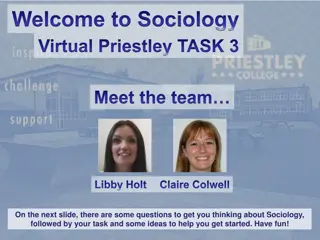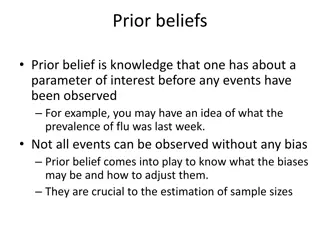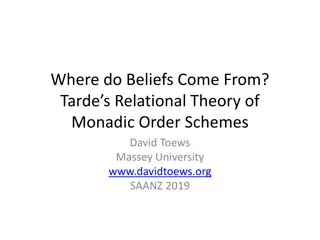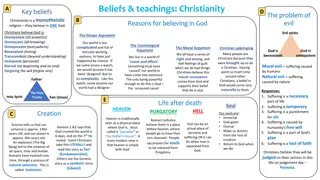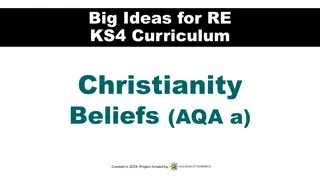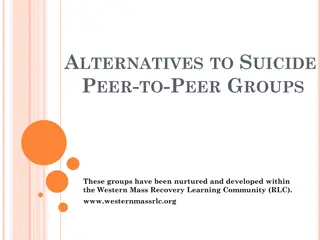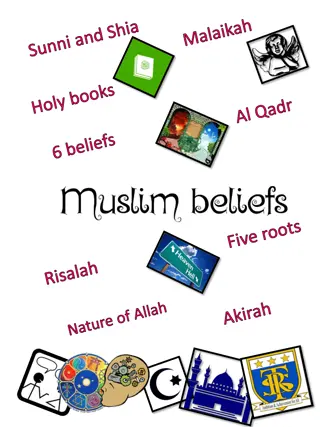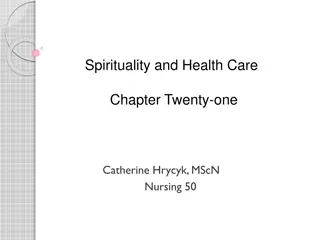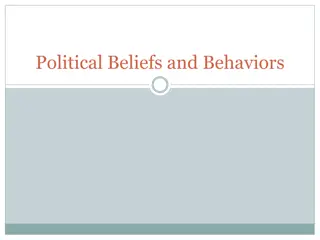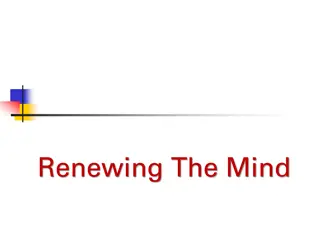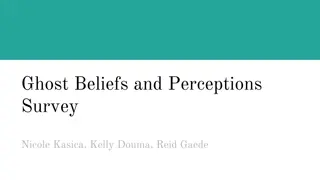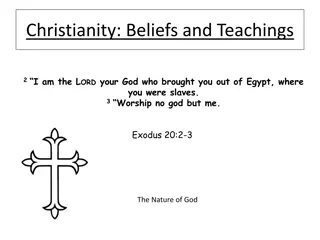
Debate and Arguments on Secularisation: Understanding the Shift from Religious Beliefs to Rationality
Research on secularisation faces methodological challenges due to differing interpretations. Findings may not provide a complete or universal picture, as definitions, methods, and interpretations vary. Arguments for secularisation highlight shifts from religious thinking and belief to rationality, disenchantment, and decline in religious practice in the UK.
Download Presentation

Please find below an Image/Link to download the presentation.
The content on the website is provided AS IS for your information and personal use only. It may not be sold, licensed, or shared on other websites without obtaining consent from the author. If you encounter any issues during the download, it is possible that the publisher has removed the file from their server.
You are allowed to download the files provided on this website for personal or commercial use, subject to the condition that they are used lawfully. All files are the property of their respective owners.
The content on the website is provided AS IS for your information and personal use only. It may not be sold, licensed, or shared on other websites without obtaining consent from the author.
E N D
Presentation Transcript
http://upload.wikimedia.org/wikipedia/commons/thumb/9/9e/Bryanronaldwilson.jpg/160px-Bryanronaldwilson.jpghttp://upload.wikimedia.org/wikipedia/commons/thumb/9/9e/Bryanronaldwilson.jpg/160px-Bryanronaldwilson.jpg
The fact that there is debate over what should be included in the notion of secularisation means that researchers are faced with methodological problems when trying measure it as each researcher might interpret it differently. Do findings on secularisation provide a true, genuine picture of what they claims to show? Would another researcher achieve the same results? Different definitions, different methods, different interpretations! Can findings be generalised to the whole population or just a minority of the population?
Arguments For Secularisation: 1) A Decline in Religious Thinking & Belief Weber (1864 1920): Disenchantment & Rationalisation Weber argued that with the advent of industrialisation, people would start to look towards science and rationality rather than religion and the supernatural. This would create a Desacrilisation of Consciousness a loss of the capacity to experience a sense of sacredness & mystery in life . Bruce (2008): Suggests that Religious beliefs have become Marginalised people only turn to them as a last resort: When we have tried every cure for cancer, some of us pray .
Lyotard (1984) & Bauman (2000): Decline in Metanarratives & the Fragmentation of Belief: Postmodernists like Lyotard & Bauman argue that Metanarratives like religion have lost their influence as people are more likely to control their own identitiesin a Liquid , Pick-n- Mix world. People now have more choice to create do-it-yourself identities and enter the Spiritual Supermarket when it comes to their beliefs. Religion has lost it s power and influence and has become watered down & fragmented to the extent that it becomes meaningless.
Arguments For Secularisation: 2) A Decline in Religious Practice In the UK, decline can be seen in all major Christian denominations (Christian Research: UK Christain Handbook Religious Trends 2003/2004) In 2007, 2% of the population attended religious ceremonies on Sundays compared with 40% in 1851. There is also declining attendance at Christmas & Easter two of the major Christian events. Fewer than of all marriages in the UK involve a religious ceremony. Less than a of babies are now baptised, compared with 2/3 in 1950. 100 years ago, half of children attended Sunday Schools. If current trends continue however, Sunday Schools will become extinct 2016.
Despite the growing numbers of NAMs & NRMs, membership is still very small. Also the growth of new NRMs/ NAMs is insignificant to the number of religious movements that are collapsing. Bruce (2001) points out that less people are opting for carers within the clergy: 1900: 45 000 British Clerics 2000: 34 000 http://t3.gstatic.com/images?q=tbn:pSvjpMCRfcH63M:http://softwarewarning.com/images/stamp-danger.jpg
Arguments For Secularisation: 3) Decline of Power & Influence of Religious Institutions
Herberg (1960): Secularisation from Within Herberg suggests that religions are going against their traditions and regulations themselves and as such are showing weakness. He points out the ordination of women as evidence of this & also the downplaying of miracles and the literal interpretations of scripture, the acceptance of homosexuality as evidence of this. It is also worth noting that the use of Latin in Catholic services is no longer mandatory and is now voluntary. Lyon (2000): Jesus in Disneyland Lyon argues that religion is going through a process of Disneyfication in that it is becoming trivialised and taken less seriously. He suggests that, in the post-modern market world, people are want to customise their identities and are free to do so as religion is fast-becoming just another commodity on the market shelf.




